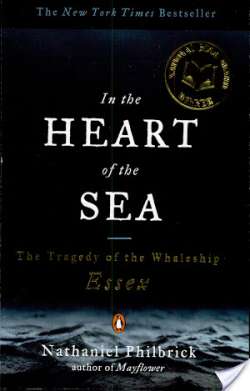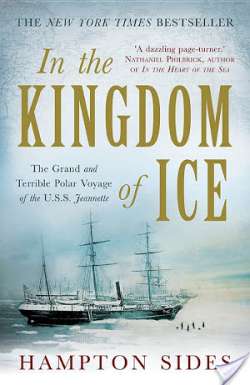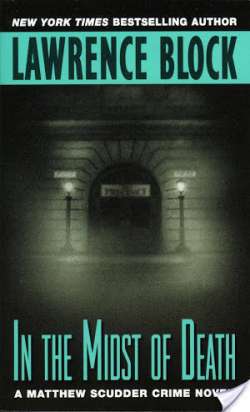« Return to all search results
Title Search Results

Pursuing her desire to be a knight, Alanna learns many things in her role as squire to Prince Jonathan, but fears Duke Roger, an ambitious sorcerer with whom she knows she will one day have to deal.

Recounts the story of the 1820 wreck of the whaleship Essex, which inspired Melville's classic "Moby-Dick," and describes its doomed crew's ninety-day attempt to survive whale attacks and the elements on three tiny lifeboats.

In 1879 the USS Jeanette set sail from San Francisco to cheering crowds and a frenzy of publicity. The ship and its crew, captained by the heroic George De Long, were heading for glory and the last unmapped area of the globe: the North Pole. But it was not long before the Jeanette was trapped in crushing pack ice. Amid the rush of water and the shrieks of breaking wooden boards, the crew found themselves marooned a thousand miles north of Siberia with only the barest supplies, facing a seemingly impossible trek across the endless ice. Battling everything from snow blindness and polar bears to ferocious storms and frosty labyrinths, the expedition battled madness and starvation as they desperately strove for survival. With twists and turns worthy of a thriller, In the Kingdom of Ice is a spellbinding tale of heroism and determination in the most unforgiving territory on Earth.

"In this stunningly written book, a Western trained Muslim doctor brings alive what it means for a woman to live in the Saudi Kingdom. I've rarely experienced so vividly the shunning and shaming, racism and anti-Semitism, but the surprise is how Dr. Ahmed also finds tenderness at the tattered edges of extremism, and a life-changing pilgrimage back to her Muslim faith." - Gail Sheehy The decisions that change your life are often the most impulsive ones. Unexpectedly denied a visa to remain in the United States, Qanta Ahmed, a young British Muslim doctor, becomes an outcast in motion. On a whim, she accepts an exciting position in Saudi Arabia. This is not just a new job; this is a chance at adventure in an exotic land she thinks she understands, a place she hopes she will belong. What she discovers is vastly different. The Kingdom is a world apart, a land of unparralled contrast. She finds rejection and scorn in the places she believed would most embrace her, but also humor, honesty, loyalty and love. And for Qanta, more than anything, it is a land of opportunity. A place where she discovers what it takes for one woman to recreate herself in the land of invisible women.

A bold, epic debut novel set during the war and financial crisis that defined the beginning of our century One September morning in 2008, an investment banker approaching forty, his career in collapse and his marriage unraveling, receives a surprise visitor at his West London townhouse. In the disheveled figure of a South Asian male carrying a backpack, the banker recognizes a long-lost friend, a mathematics prodigy who disappeared years earlier under mysterious circumstances. The friend has resurfaced to make a confession of unsettling power. In the Light of What We Know takes us on a journey of exhilarating scope--from Kabul to London, New York, Islamabad, Oxford, and Princeton--and explores the great questions of love, belonging, science, and war. It is an age-old story: the friendship of two men and the betrayal of one by the other. The visitor, a man desperate to climb clear of his wrong beginnings, seeks atonement; and the narrator sets out to tell his friend's story but finds himself at the limits of what he can know about the world--and, ultimately, himself. Set against the breaking of nations and beneath the clouds of economic crisis, this surprisingly tender novel chronicles the lives of people carrying unshakable legacies of class and culture as they struggle to tame their futures. In an extraordinary feat of imagination, Zia Haider Rahman has telescoped the great upheavals of our young century into a novel of rare intimacy and power.

Bad cop Jerry Broadfield didn't make any friends on the force when he volunteered to squeal to an ambitious d.a. about police corruption. Now he'saccused of murdering a call girl. Matthew Scudder doesn't think Broadfield's a killer, but the cops aren't about to help the unlicensed p.i. prove it -- and they may do a lot worse than just get in his way.

One of four innocent people convicted of a terrorist bombing in Guildford, England, tells of the miscarriage of justice that resulted in imprisonment for himself and members of his family, including his father, and describes the struggle to clear his name

A Book of Wonders for Grown-Up Readers Every once in a great while a book comes along that reminds us of the magic spell that stories can cast over us–to dazzle, entertain, and enlighten. Welcome to the Arabian Nights for our time–a lush and fantastical epic guaranteed to spirit you away from the very first page . . . Secreted away in a garden, a lonely girl spins stories to warm a curious prince: peculiar feats and unspeakable fates that loop through each other and back again to meet in the tapestry of her voice. Inked on her eyelids, each twisting, tattooed tale is a piece in the puzzle of the girl’s own hidden history. And what tales she tells! Tales of shape-shifting witches and wild horsewomen, heron kings and beast princesses, snake gods, dog monks, and living stars–each story more strange and fantastic than the one that came before. From ill-tempered “mermaid” to fastidious Beast, nothing is ever quite what it seems in these ever-shifting tales–even, and especially, their teller. Adorned with illustrations by the legendary Michael Kaluta, Valente’s enchanting lyrical fantasy offers a breathtaking reinvention of the untold myths and dark fairy tales that shape our dreams. And just when you think you’ve come to the end, you realize the adventure has only begun…. Praise for In the Night Garden “Cathrynne Valente weaves layer upon layer of marvels in her debut novel. In the Night Garden is a treat for all who love puzzle stories and the mystical language of talespinners.”—Carol Berg, author of Daughter of Ancients “Fabulous talespinning in the tradition of story cycles such as The Arabian Nights. Lyrical, wildly imaginative and slyly humorous, Valente's prose possesses an irrepressible spirit.”—K. J. Bishop, author of The Etched City “Astonishing work! Valente’s endless invention and mythic range are breathtaking. It’s as if she’s gone night-wandering, and plucked a hundred distant cultures out of the air to deliver their stories to us.”—Ellen Kushner, author of Thomas the Rhymer “Refreshingly original in both style and form, In the Night Garden should delight lovers of myth and folklore.”—Juliet Marillier, author of the Sevenwaters trilogy

“This prizewinning author’s gorgeous, empathetic collection is composed of stories (mostly) in and about L.A. that juxtapose the haves and the have-nots.” —Marie Claire Following her award-winning collection Break Any Woman Down, Dana Johnson returns with a collection of bold stories set mostly in downtown Los Angeles that examine large issues—love, class, race—and how they influence and define our most intimate moments. In “The Liberace Museum,” a mixed-race couple leave the South toward the destination of Vegas, crossing miles of road and history to the promised land of consumption; in “Rogues,” a young man on break from college lands in his brothers Inland Empire neighborhood during a rash of unexplained robberies; in “She Deserves Everything She Gets,” a woman listens to the strict advice given to her spoiled niece about going away to college, reflecting on her own experience and the night she lost her best friend; and in the collection’s title story, a man setting down roots in downtown L.A. is haunted by the specter of both gentrification and a young female tourist, whose body was found in the water tower of a neighboring building. With deep insight into character, intimate relationships, and the modern search for personal freedom, In the Not Quite Dark is powerful work that feels both urgent and timeless. “An unforgettable collection. [Johnson] is both a storyteller and an exacting observer of the beautiful ugly truths of Los Angeles, class, race, being alive.” —Roxane Gay, New York Times bestselling author “Unquestionably excellent stories . . . In the Not Quite Dark has a variety of voices and stylistic tones yet holds together tightly as a collection.” —Los Angeles Times

In the Penal Colony is a short story by Franz Kafka written in German in October 1914, revised in November 1918, and first published in October 1919. The story is set in an unnamed penal colony. Internal clues and the setting on an island suggest Octave Mirbeau's The Torture Garden as an influence. As in some of Kafka's other writings, the narrator in this story seems detached from, or perhaps numbed by, events that one would normally expect to be registered with horror. "In the Penal Colony" describes the last use of an elaborate torture and execution device that carves the sentence of the condemned prisoner on his skin before letting him die, all in the course of twelve hours. As the plot unfolds, the reader learns more and more about the machine, including its origin and original justification. The story focuses on the Explorer, who is encountering the brutal machine for the first time. Everything about the machine and its purpose is told to him by the Officer. The Soldier and the Condemned (who is unaware that he has been sentenced to die) placidly watch from nearby. The Officer tells of the religious epiphany the executed experience in their last six hours in the machine. Eventually, it becomes clear that the use of the machine and its associated process of justice – the accused is always instantly found guilty, and the law he has broken is inscribed on his body as he slowly dies over a period of 12 hours – has fallen out of favor with the current Commandant. The Officer is nostalgic regarding the torture machine and the values that were initially associated with it. As the last proponent of the machine, he strongly believes in its form of justice and the infallibility of the previous Commandant, who designed and built the device. In fact, the Officer carries its blueprints with him and is the only person who can properly decipher them; no one else is allowed to handle these documents.
